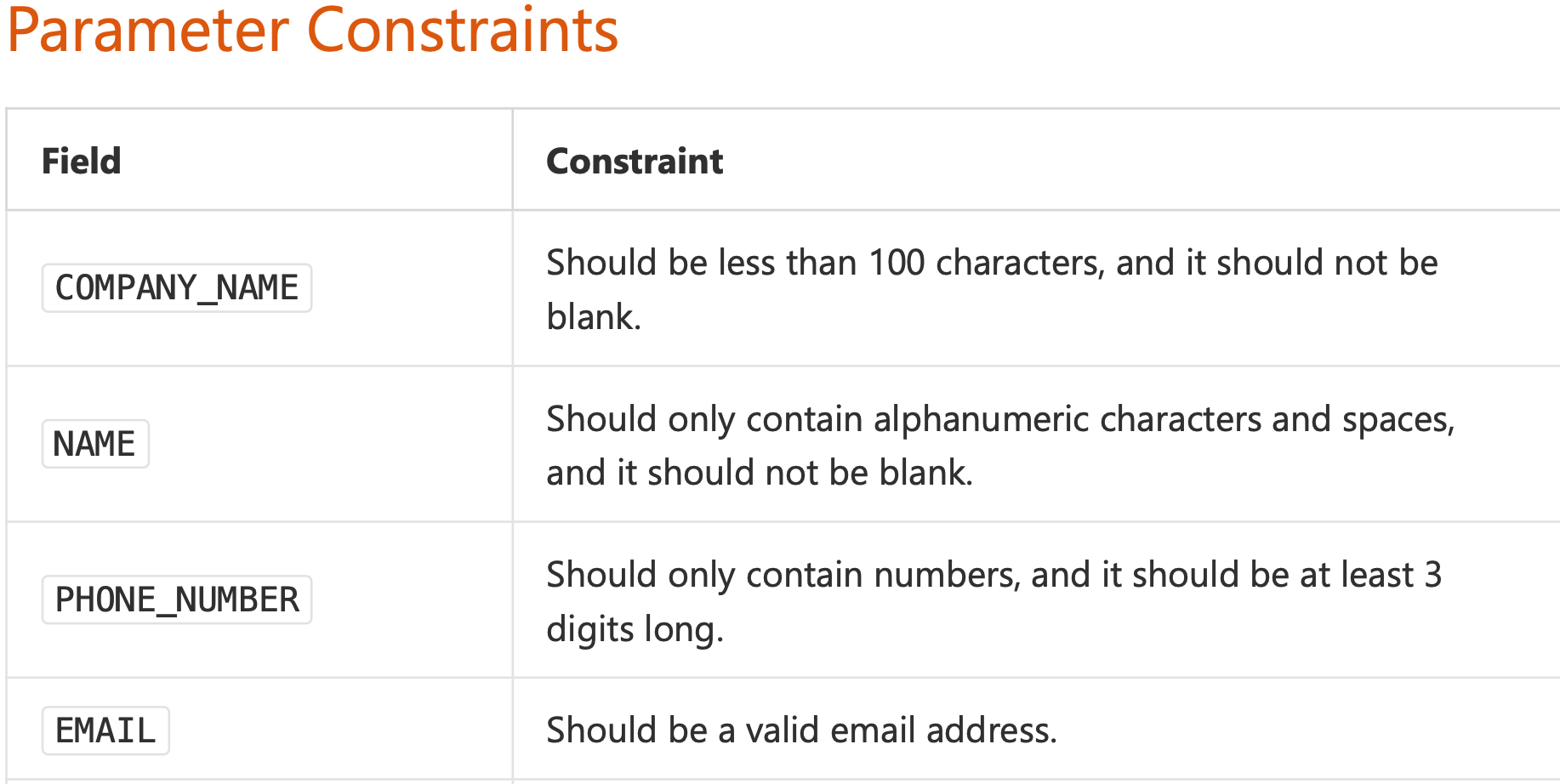Team's Response
Thank you for raising this concern. However, our team thinks that Should be is a reasonable wording. Since we as developers have no control over the user's input, the user is free to enter a value that is not within the constraints, but our program will not accept the value and display an error message. Hence, should is an ideal word to describe what they users should do as they can choose not to do so, except that our program will display an error message. Furthermore, it is intuitive for users to follow the constraints stated. Hence, the wording does not affect the users' usage and we do not think of this as a bug.
Items for the Tester to Verify
:question: Issue response
Team chose [response.Rejected]
- [x] I disagree
Reason for disagreement: Should is not an ideal word as although users are able to freely type on their keyboard by writing things out of the contraints above, this only produces error messages that renders the app useless for the users. And the very response of throwing error means that they are not allowed to enter other things out of the constraint.
By convention, contraints is definitive words like "must", and not ambiguous instructions like "should" as contraints implies a limit on the way users can interact with the field. Inappropriate wording to "Should" causes confusion as readers might take it as a suggestion but in reality, it is a hard limit on what they can and cannot do.

## :question: Issue severity Team chose [`severity.VeryLow`] Originally [`severity.Low`] - [x] I disagree **Reason for disagreement:** Not just cosmetic as it causes confusion as readers might take it as a suggestion but in reality, it is a hard limit on what they can and cannot do.
The use of
shouldimplies that it is possible to not follow the constraints, which is not the ideal wording.